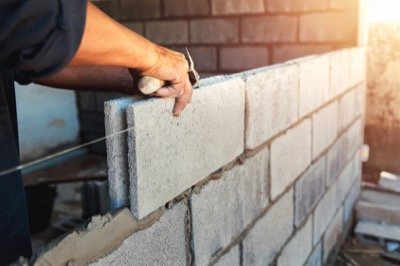Stick Vs. Mason-Built Home: Benefits and Drawbacks
Posted by Gary Ashton on Monday, August 12th, 2019 at 10:08am.
 When a buyer is getting ready to attend their first Open House, it helps to begin eliminating choices whenever and wherever possible. Buyers should see a variety of homes before they make their decision of course, but if they see too many, they're likely to become overwhelmed by the end of the process. One thing a buyer can do is learn how different types of construction will affect their homeowner's experience. Stick and mason-built homes share similarities in terms of size and sometimes even look, but their construction process is very different. Learn more about the respective techniques and advantages of each one.
When a buyer is getting ready to attend their first Open House, it helps to begin eliminating choices whenever and wherever possible. Buyers should see a variety of homes before they make their decision of course, but if they see too many, they're likely to become overwhelmed by the end of the process. One thing a buyer can do is learn how different types of construction will affect their homeowner's experience. Stick and mason-built homes share similarities in terms of size and sometimes even look, but their construction process is very different. Learn more about the respective techniques and advantages of each one.
What Is Stick Building?
This term refers to the standard way of creating the frame of a house. Some builders favor stick buildings on smaller or custom-built homes because they have more flexibility to change the design during the construction of new homes. With engineered lumber, they could be met with resistance when making the same adjustments because it's pre-cut (and sometimes pre-assembled). The stick building frame typically consists of not just the base structure of the home, but also the floor supports and the roof. It's assembled on-site from separate pieces of wood.
What Is Mason Building?
Masonry homes primarily rely on concrete rather than lumber for its central construction:
- Precast concrete floor
- Concrete foundation
- Concrete basement
- Concrete walls
- Insulation
- Brick veneer
- Wooden Roof
So while the home may look as though it's made from solid brick on the outside, the walls will be reinforced with concrete. Mason homes may look like they started off with a traditional frame, but they have a thicker design to insulate the home.
Which Is Better?
Some buyers may think that all stick buildings are of high quality, perhaps because of the general perception of custom-built lumber homes. These homes may look unique, adding extra personality to even the smallest of homes. Their custom features can charm buyers and make them feel instantly at home. However, the real test of the quality of a stick building lies in the skill of the individual builders. A stick-built home is not necessarily of sounder quality, despite what it may look like from the outside.
On the other hand, a mason home was created with energy efficiency and noise reduction in mind, and its concrete foundation makes the home more likely to withstand a major disaster. In addition, mason homes still have some degree of flexibility when it comes to how they look. For example, they can still have the elegant hardwood floors that a buyer wants to see in their dining room. Mason homes require less maintenance from the homeowner that a stick building due to the nature of their construction.
Mason homes are about 12% more expensive than that of stick home. However, their energy efficiency and lower maintenance costs typically more than compensate for the expense.
What's Better for the Environment?
For Clarksville new home buyers looking to cut down on their carbon footprint, a mason-built home will use fewer trees than a stick building. A 2,000-sq.-ft. mason home will only use about 5 trees for its construction. While lumber is a renewable resource, some forests are being depleted at an unsustainable rate. The materials used for a mason home come from well-stocked quarries. It takes about the same amount of time to build as a lumber home, so it won't take up any additional energy than its counterpart.
Both options can be a good choice for homeowners, though mason homes tend to have a few edges over stick buildings. It all comes down to the buyer's budget, personal preferences, and location. One more point to keep in mind is that mason homes tend to retain their resale value due to their overall longevity.

Gary Ashton
The Ashton Real Estate Group of RE/MAX Advantage
The #1 RE/MAX team in the World!
